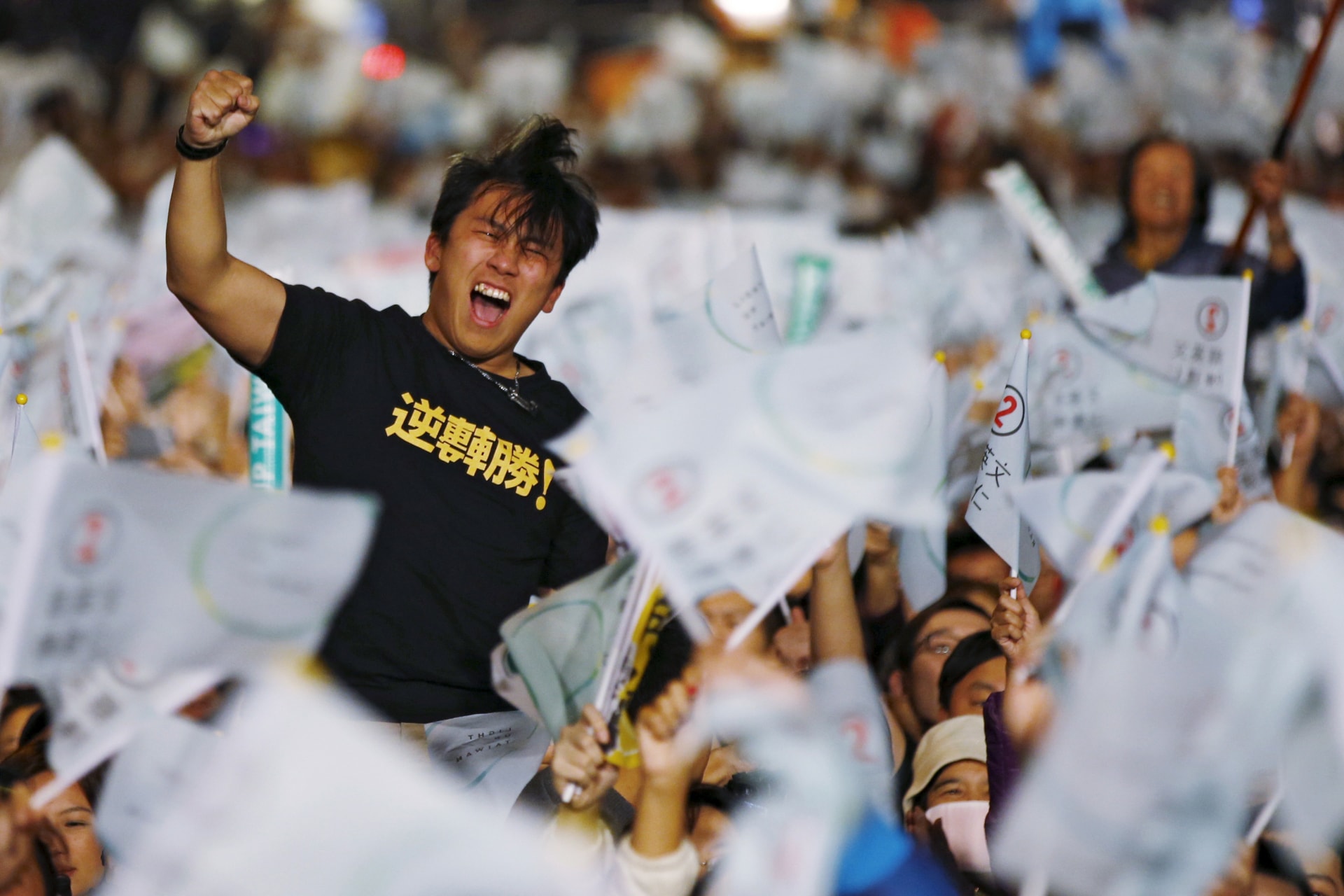When Election Interference Fails
While Tsai Ying-wen’s landslide victory in Taiwan’s 2020 general elections is significant in its own right, it is even more meaningful because it occurred in spite of China’s concerted efforts to prevent her from winning. Social media, measures adopted by Taiwan’s government, and Taiwanese civil society helped to mitigate Chinese election interference.

By experts and staff
- Published
By
- Guest Blogger for Net Politics
Connor Fairman is a research associate in the Digital and Cyberspace Policy program at the Council on Foreign Relations.
On January 11, President Tsai Ying-wen received an overwhelming 57.1 percent of the vote in Taiwan’s general election, winning her a second term. Not only did she win, but she also received the most votes ever cast for a candidate in Taiwan, and her Democratic Progressive Party (DPP) retained control of Taiwan’s legislative body. While these results are significant in their own right, they are even more noteworthy because they occurred in spite of China’s concerted effort to prevent Tsai Ying-wen and the DPP from winning. China’s interference in Taiwan’s election was multifaceted, and included paying Taiwanese media outlets to promote China’s preferred candidate, Han Kuo-yu of the Kuomintang, as well as spreading disinformation through social media platforms and launching cyberattacks to steal sensitive Taiwanese government data. These efforts largely failed for three reasons.
First, unlike in Taiwan’s 2018 election, social media platforms contained and weakened Chinese influence campaigns. Thanks to Facebook’s decision to crack down on content farms, or accounts that coordinate to spread disinformation, Chinese actors had to try other measures, such as attempting to buy pro-Taiwan Facebook pages. However, due to linguistic differences between China and Taiwan, it was immediately obvious to moderators that the people offering to buy their page were from China. These linguistic giveaways similarly undermined a trend on Instagram and Facebook, where posts by people declaring their intention to vote, pictured holding a fist at their chest, a gesture often used by Han Kuo-yu, and complaining about Taiwan’s economy featured language that seemed strange to Taiwanese readers. Twitter also closed its platform to Chinese trolls and bots by deleting and suspending over two hundred thousand accounts in the months leading up to the election.
Second, Taiwan’s government took concrete steps to combat China’s election interference campaign. Government task forces were formed to conduct investigations, and the Ministry of Foreign Affairs partnered with the United States to share expertise and information. Two weeks before the election, Taiwan’s Legislative Yuan passed the Anti-Infiltration Act, making attempts to influence elections on behalf of “overseas hostile forces” punishable with up to five years in prison and a fine of over $300,000. Prior to the election, multiple unnamed news sources admitted that China’s Taiwan Affairs Office paid them to censor themselves and run feature stories that portrayed China positively. Taiwan’s National Security Bureau also discovered that Taiwanese news outlets were sending content to Beijing for approval before publishing. The Anti-Infiltration Act provided the legal framework necessary to address these threats. The Taiwanese government also collaborated with Facebook to establish a regional elections center to counter disinformation ahead of the election. On December 13, weeks before the election, the center removed a fan page for Han Kuo-yu that had 150,000 members for violating Facebook’s community standards.
Finally, Taiwanese civil society effectively mobilized to combat disinformation. CoFacts, a non-profit staffed by twelve volunteers, designed a chatbot on the social media platform Line to respond to users unsure if something they saw on the platform was legitimate. Once a message is received by the chatbot, it is added to CoFacts’ database and a human volunteer fact-checks it. In the weeks leading up to the election, CoFacts’ volunteers fact-checked thousands of dubious messages. Another non-profit, Taiwan FactCheck Center, partnered with Facebook to track and fact-check viral posts. If a post turned out to be inaccurate, Facebook alerted the user. DoubleThink Labs, an organization founded by academics, monitored one million accounts on Weibo and WeChat and sorted through thousands of instances of suspected fake content daily during the weeks before the election. In addition to fact-checking, groups also focused on educating voters and held workshops on differentiating between real and fake news. These organizations influenced both large corporations and individuals at the grassroots level.
To be sure, China made a number of mistakes, and many of its attempts to interfere in Taiwan’s general election were too overt. Xinhua, for example, reported on United Front meetings in 2019 that openly discussed using the internet to spread Chinese government ideology. The suicide of Su Chi-cheng, a Taiwanese diplomat in Osaka, after Chinese news outlets falsely reported that he failed to rescue Taiwanese people during Typhoon Jebi further alarmed Taiwanese voters. But while China made mistakes that didn’t help its cause, Taiwan’s success in undermining China’s disinformation campaign was ultimately due to legal measures taken by the Taiwanese government and successful cooperation between the government, civil society, and social media platforms. This model of cooperation should inspire other countries as they prepare to hold elections in 2020.